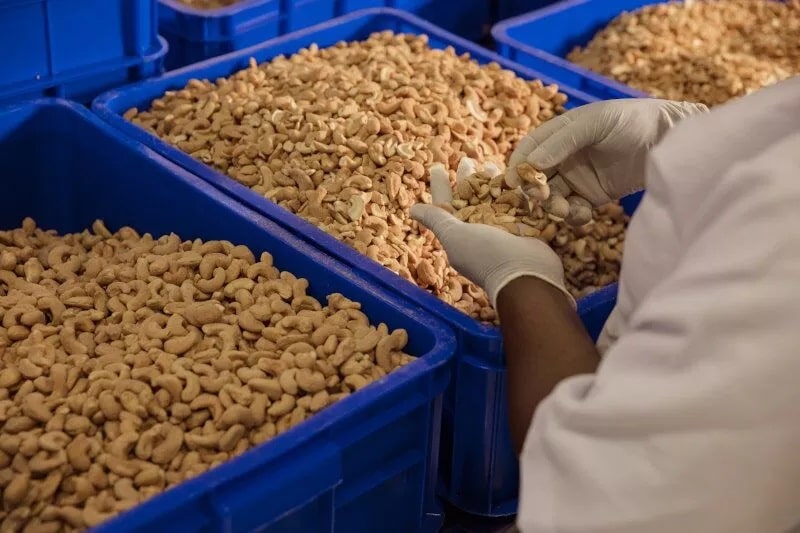Coop Bank on mission to end the financial inclusion divide

What you need to know:
- The bank aims to eliminate the barriers that have long excluded farmers in rural areas from formal banking services, empowering them to take control of their finances
Dar es Salaam. Coop Bank Tanzania (CBT), which began operations in October 2024, is on a mission to drive financial inclusion, particularly for underserved communities, with a strong emphasis on farmers.
The bank aims to eliminate the barriers that have long excluded farmers in rural areas from formal banking services, empowering them to take control of their finances.
CBT was formed through the merger of Tandahomba Cooperative Bank (Tacoba) and Kilimanjaro Co-operative Bank Limited (KCBL).
Initially, the bank operates in Tandahimba, Kilimanjaro, Dodoma, and Tabora, with plans for an official launch by President Samia Suluhu Hassan on 27-28 April 2025 at the Jakaya Kikwete Convention Centre in Dodoma.
In an exclusive interview with The Citizen, CBT’s Head of Credit, Ms Imaculatha Maro, outlined the bank’s strategic focus on expanding financial inclusion.
She said the bank particularly targets cooperative members and underserved communities, with a special emphasis on farmers, many of whom live in remote areas with limited access to financial services.
“At the heart of our mission are Tanzania’s farmers, many of whom have to walk over 30 kilometres just to deposit as little as Sh50,000,” said Ms Maro.
“We aim to bring banking services directly to their doorsteps—timely, affordable, and accessible,” she added.
She highlighted the risks farmers face by storing their earnings at home, which are vulnerable to theft or loss, and emphasised the importance of providing secure banking solutions.
“Instead of keeping their money under the mattress, we offer safer, local banking services that protect their hard-earned savings,” added Ms Maro.
In its strategies, she said CBT plans to offer input financing through loans for farmers to purchase agricultural equipment such as tractors and power tillers and prepare their land. She said farmers will also be eligible for post-harvest loans to bridge the gap between harvesting and payment for their produce.
“We recognise the delay between harvesting and payment. That’s why Coop Bank Tanzania will introduce special packages to support farmers with subsistence funds while they wait for payments,” she said.
Furthermore, Ms Maro said that through collaborations with other stakeholders, the bank will offer instant loans to farmers at interest rates as low as 10 percent, on par with commercial banks.
According to her, loans will be secured using harvested crops stored in warehouses or farm machinery, such as tractors, as collateral.
She added that the farm itself would serve as collateral for farmers requiring land preparation loans.
“The land will be assessed to determine its value before the loan is disbursed. This approach will allow farmers to access capital while ensuring the bank can mitigate risks,” he said.
Loans will be issued in phases, with each stage of funding dependent on the successful completion of previous phases, including land preparation, seed procurement, fertilisers, and other inputs.
Ms Maro further explained that farmers of strategic crops such as tobacco and cashew nuts would undergo training before receiving loans, ensuring funds are used effectively to benefit individual farmers and the national economy.
“For example, if a farmer is approved for a Sh10 million loan, we may start with Sh5 million for land preparation,” she said.
“Once we confirm that seeds have been planted and germinated, we’ll release the next tranche for fertilisers and chemicals,” she added.
The phased approach ensures that funds are used for their intended purpose, strengthens the relationship between farmers and the bank, and maintains control over loan disbursement. CBT’s services extend beyond farmers to youth, women, entrepreneurs, bodaboda groups, and other excluded groups.
The bank also offers cooperative insurance to protect farmers against agricultural risks such as floods and famine.
“We’re providing a variety of services, including the Kilimo Tija Account for individual farmers, as well as the Jasiri, Scholar, and Toto Accounts,” Ms Maro added, noting that these services ensure the bank’s sustainability while catering to the diverse needs of Tanzanians.
The Tanzania Cooperative Development Commission (TCDC) Deputy Registrar Regulatory Mr Collins Nyakunga highlighted the role of technology in the bank’s operations.
He explained that Information and Communication Technology (ICT) is being used to register farmers and their assets, a significant improvement over the previous manual registration system.
Mr Nyakunga said regional and district cooperative officers have also been trained to effectively supervise cooperative unions, ensuring they fulfil their duties and provide better services to members.
“Government support has been crucial in facilitating the establishment of the bank. We’ve provided the necessary tools for cooperative unions to reach their members and offer them services that contribute to national development,” he said.
Mr Nyakunga noted that the TCDC’s regular inspections have helped reduce theft and embezzlement in cooperatives, while education for stakeholders ensures compliance with cooperative laws.
“The government has been instrumental in disbursing funds to members through SACCOs, and we will continue to support the bank’s efforts to transform the lives of Tanzanians,” he said.
Mr Nyakunga further emphasised the importance of cooperatives in the country’s economy, saying they protect farmers from exploitation by providing access to inputs, extension services, and fair market prices.
According to him, formalised markets also enable the government to collect levies for development projects. “For Saccos, individuals who previously struggled to access commercial loans now have new funding opportunities. This is a significant achievement for financial inclusion in Tanzania,” he recommended.
CBT’s approach is expected to address major challenges in the agricultural sector, including theft, fraud, and embezzlement in commodity trading.
By bridging the gap between farmers and financial services, the bank is creating a pathway for farmers to improve their productivity and financial security.




